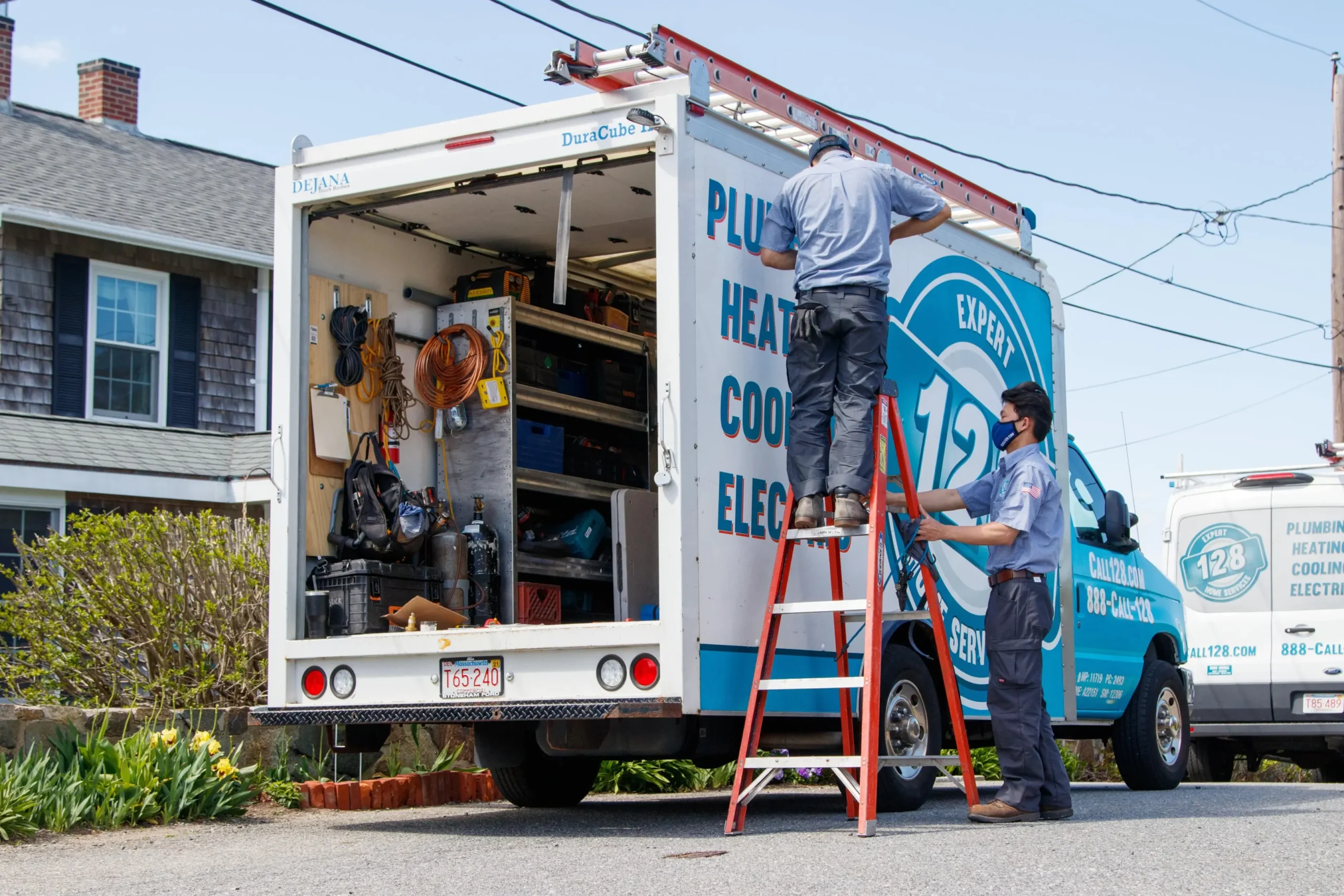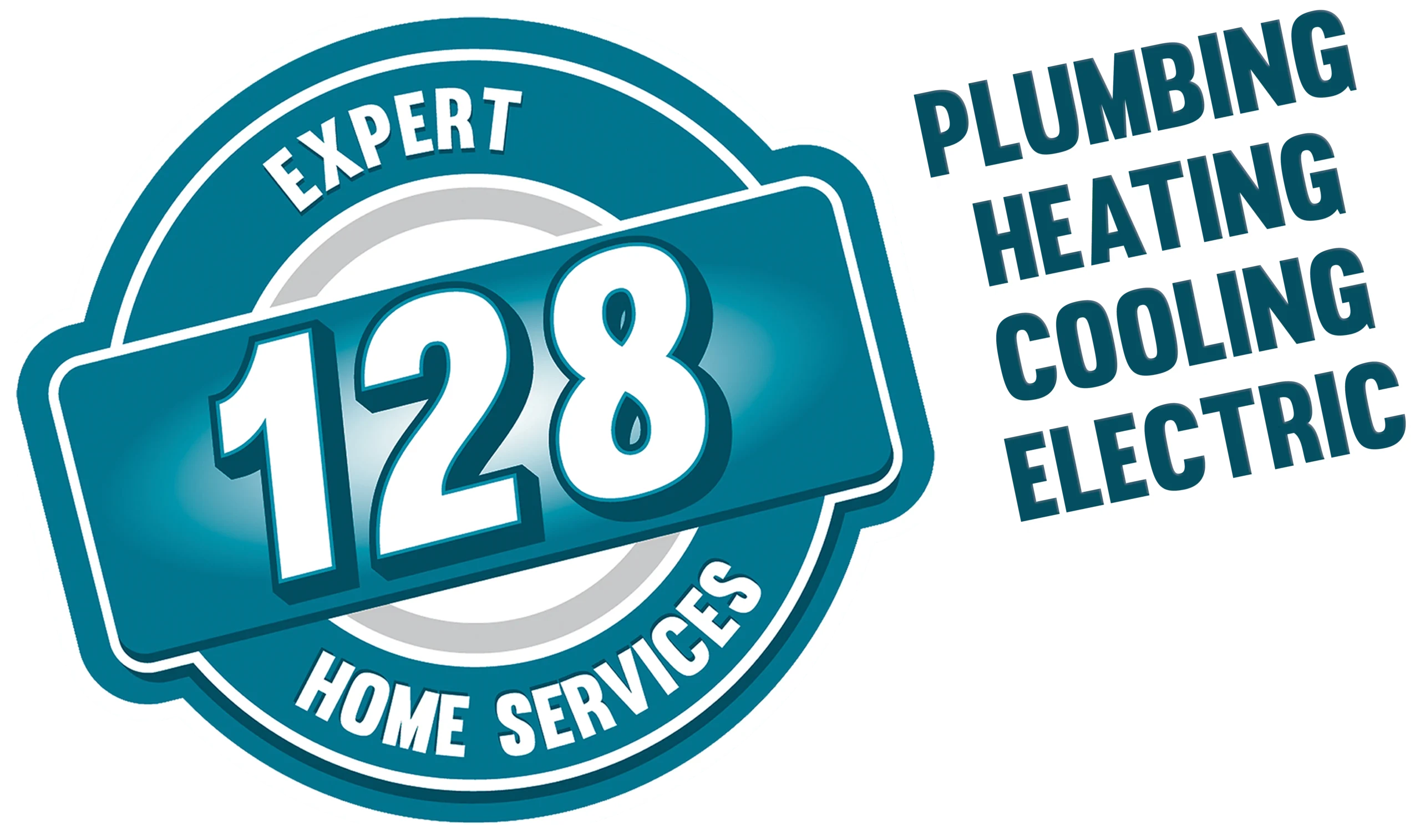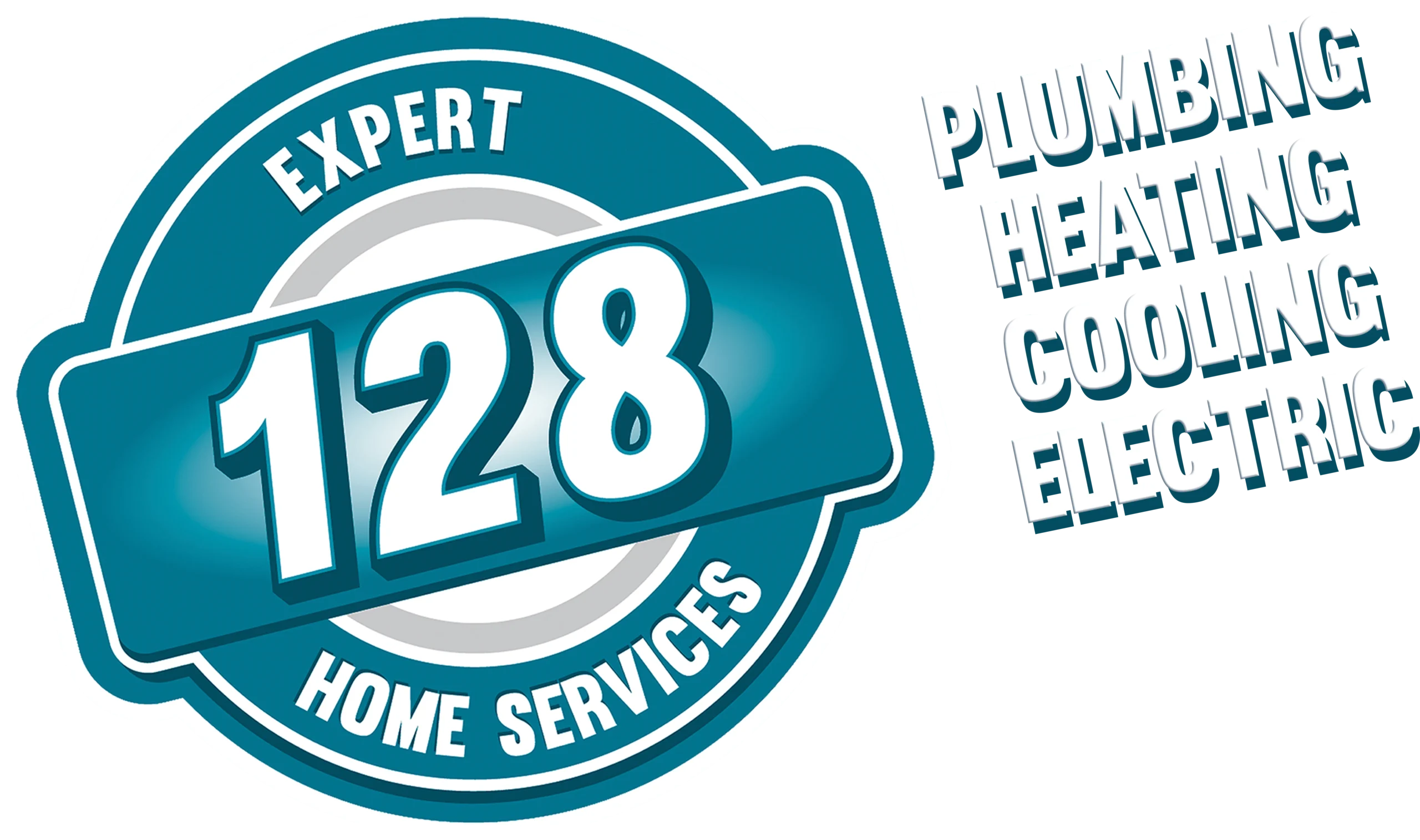
Converting your home’s heating system from oil to electric is a smart move in today’s energy-conscious world. Not only will you enjoy improved energy efficiency and cost savings, but you’ll also be contributing to a greener future for our planet.
You’ll find that the process of converting oil to electric heat is more straightforward than you might imagine. Here at 128 Plumbing, Heating, Cooling, & Electric, we strive to make that process as seamless, manageable, and stress-free as possible. Here we’ll explore the advantages, steps, and considerations involved in making this environmentally friendly change.
Key Takeaways
- Understand the process of converting from oil to electric heat and employ a certified specialist for safe removal of old furnace/tank.
- Upgrade electrical components prior to installing new system, and choose an optimal heating system based on efficiency, cost & compatibility with home infrastructure.
- Take advantage of financing options & incentives such as rebates & tax credits for successful conversion with 128 Plumbing, Heating, Cooling, & Electric experts.
Understanding the Oil to Electric Conversion Process
Transitioning from oil to electric heat might seem like a daunting task, but with the right guidance, it doesn’t have to be. The conversion process involves removing your old oil furnace and tank, upgrading your home’s electrical components, and selecting the most suitable electric heating system, such as an electric furnace, for your needs.
Removing the Old Oil Furnace and Tank
The first step in converting from oil to electric heat is to remove your old oil furnace and oil tank. Employing a certified specialist to properly uninstall and dispose of your oil heating system and tank is of utmost importance. Our professionals have the necessary expertise to handle this process safely and efficiently, ensuring that the old equipment is disposed of in an environmentally responsible manner.
Upgrading Electrical Components
Once the old oil furnace and tank are removed, you should then focus on upgrading your home’s electrical components. This may involve:
- Assessing your electrical system
- Evaluating the heating and cooling load of the HVAC system installation
- Consult with an electrician to determine any needed upgrades, such as installing a 200-amp electric panel.
Properly upgrading the electrical components ensures that your new electric heating system will function safely and efficiently.
Choosing the Right Electric Heating System
Choosing the right electric heating system for your home requires consideration of factors like efficiency, cost, and compatibility with your home’s existing infrastructure. Heat pumps are a popular choice for electric heating systems, providing both heating and cooling capabilities through an energy-efficient process.
Consultation with an HVAC professional can help confirm if your residence is suitable for a heat pump alone or needs a backup heating system, ensuring you get the best fit for your home. By taking the time to choose the right electric heating system, you’re setting yourself up for long-term success in both energy efficiency and cost savings.
The Advantages of Converting to Electric Heat
Converting to electric heat offers a range of benefits that make it an attractive option for homeowners. Improved energy efficiency, cost savings, and environmental benefits are just a few of the advantages that come with making the switch from oil heat to electric heating systems.
We will discuss these benefits in further detail.
Improved Energy Efficiency
One of the primary advantages of electric heating systems is their energy efficiency. Compared to oil heating systems and natural gas system, electric heating systems generally consume less energy, leading to lower utility bills.
Switching to electric heat offers several benefits:
- More efficient heating solution for your home
- Less energy consumption, resulting in lower energy bills
- Reduced carbon footprint and contribution to a greener environment
Cost Savings
In addition to improved energy efficiency, converting to electric heat can result in significant cost savings. Research suggests that a home in Massachusetts that is heated with heating oil is more costly in the winter season.
Financial incentives, such as rebates and tax credits, can further offset the initial costs of converting to electric heat. Leveraging these programs can result in additional savings while you enjoy the benefits of a cleaner, more efficient heating system.
Environmental Benefits
Making the switch to electric heat, including electric baseboard heat, also comes with significant environmental benefits. Electric heating systems generate fewer emissions and have a lower carbon footprint compared to oil-based systems. This means that by converting to electric heat, you’re making a positive impact on the environment and helping to reduce greenhouse gas emissions.
Moreover, electric heating systems offer several benefits:
- They do not create direct emissions, resulting in cleaner indoor air quality.
- Choosing an electric heating system enhances your home’s energy efficiency and saves money.
- Electric heating promotes a healthier, more sustainable environment.
Electric Heating System Maintenance and Troubleshooting
Like any other home appliance, electric heating systems require regular maintenance and occasional troubleshooting to ensure optimal performance and longevity. By performing routine maintenance tasks and addressing common issues, you can keep your electric heating system running smoothly and efficiently.
It’s recommended that electric heating systems be serviced on an annual basis to ensure optimal efficiency and longevity. Maintaining a regular maintenance schedule can help prevent potential issues and prolong the lifespan of your electric heating system. Check out our maintenance programs to learn more about how 128 Plumbing, Heating, Cooling, & Electric can keep your system working as efficiently as possible by keeping up with routine maintenance.
Financing and Incentives for Converting to Electric Heat
The initial costs of converting to electric heat can be offset by various financing options and incentives provided by government programs, utility companies, and manufacturers. These financial aids can help make the switch to a greener and more energy-efficient heating system more affordable for homeowners. If you’re looking for more information about potential rebates and incentives in your area, contact us today and we can walk you through what your options are.
128 Plumbing for your Oil to Electric Conversion
If you’re considering converting your home’s heating system from oil to electric, 128 Plumbing is here to help. Our team of certified experts offers services including the removal of old oil furnaces and tanks, upgrading electrical components, and installing the most suitable electric heating system for your home. With our assistance, you can ensure a smooth and efficient transition to a greener and more energy-efficient future.
Frequently Asked Questions
How much does it cost to convert oil to electric?
Replacing an oil furnace with an electric one can range in cost. You have many factors to take into account including the removal of the old oil furnace, tank, and lines, as well as electrical upgrades and ductwork modifications.
Is it worth switching from oil to electric heat?
Switching to electric heat can be a wise move, both for the environment and your wallet. You’ll save on energy costs and reduce carbon emissions, plus your home will have better air quality.
Can you convert from oil heat to electric?
Yes, it is possible to convert from oil heat to electric. The most common advice when doing this is to make sure your home has a 200-amp electrical service, as many homes only have 100- or 150-amp services. Additionally, when converting to an electric heating system, you can opt for a heat pump which can also serve as an energy-efficient air conditioner and may be available for no upfront cost in some locations.
Is it cheaper to use oil or electricity?
Oil heating is cheaper than electric heat, more efficient, and has greater energy savings over time. It’s also safer, cleaner burning, and more environmentally friendly than electric heat.
How can I determine the appropriate size for my electric heating system?
To determine the appropriate size for your electric heating system, consult with a professional and consider factors such as the home’s dimensions, insulation levels, and local climate.


